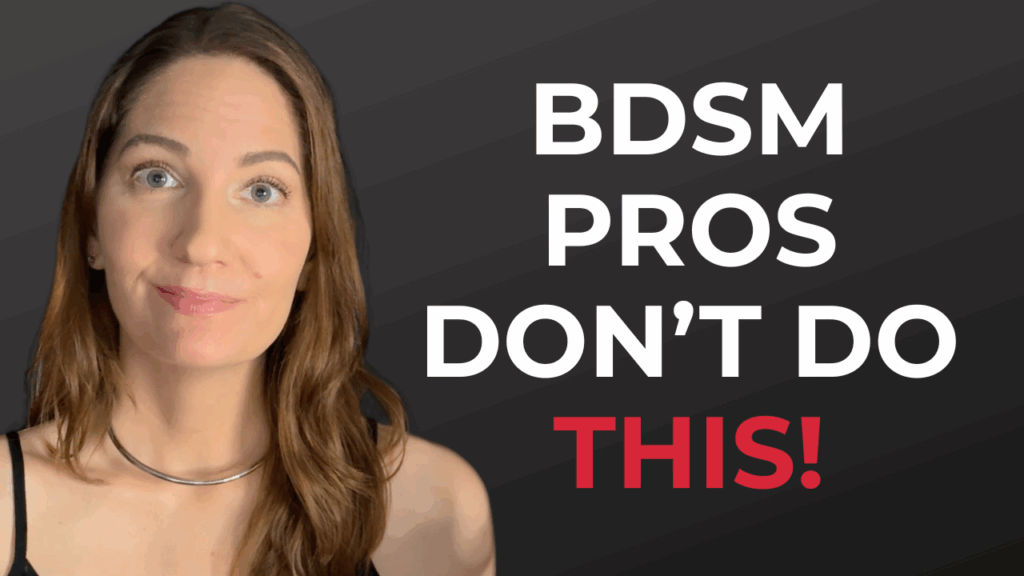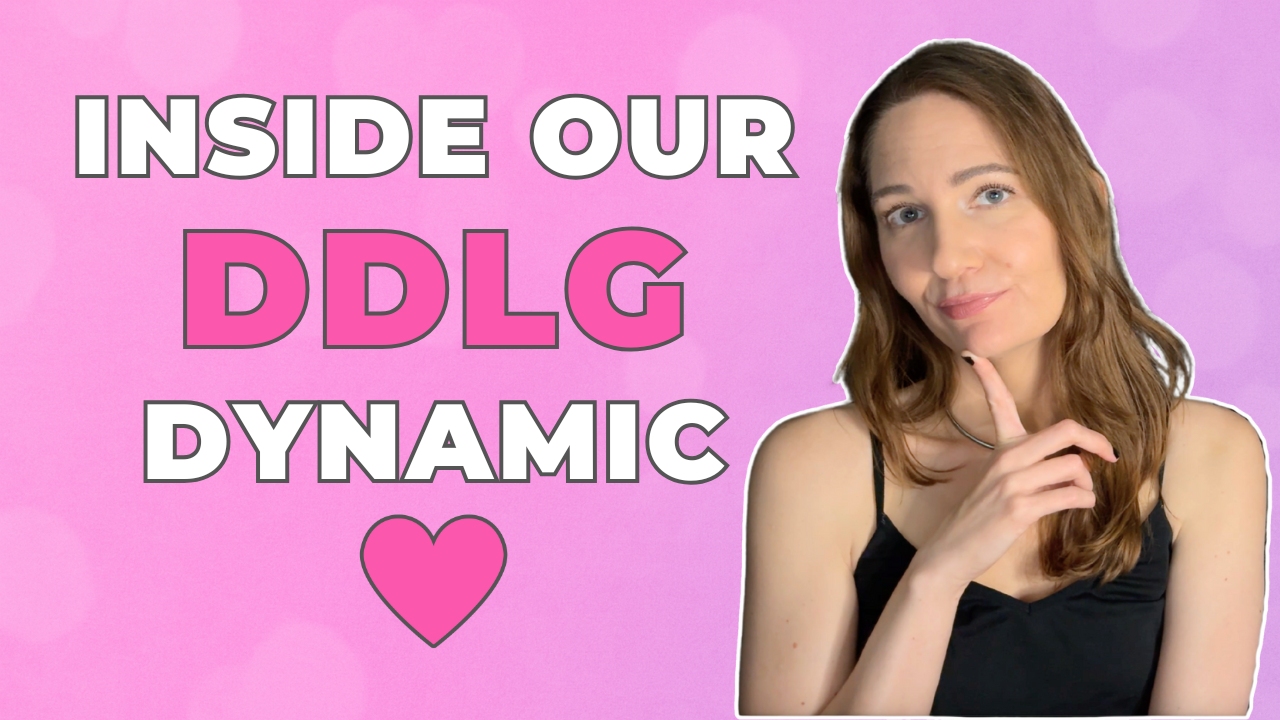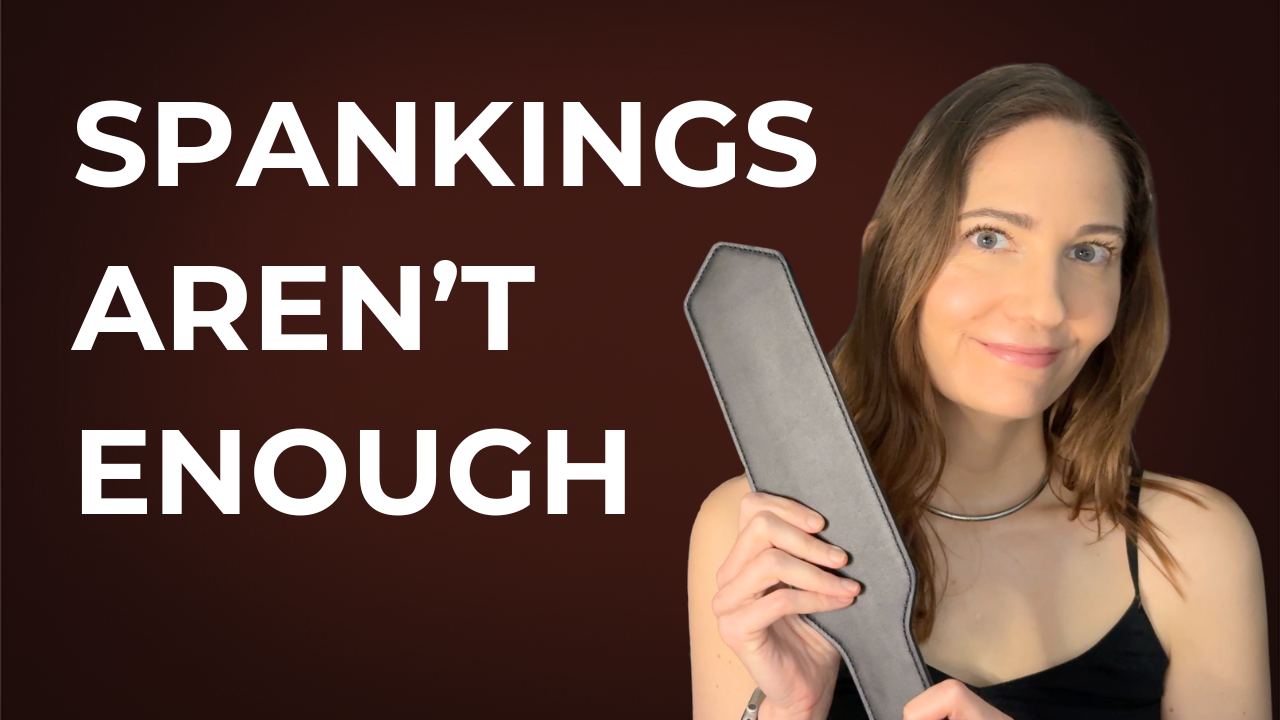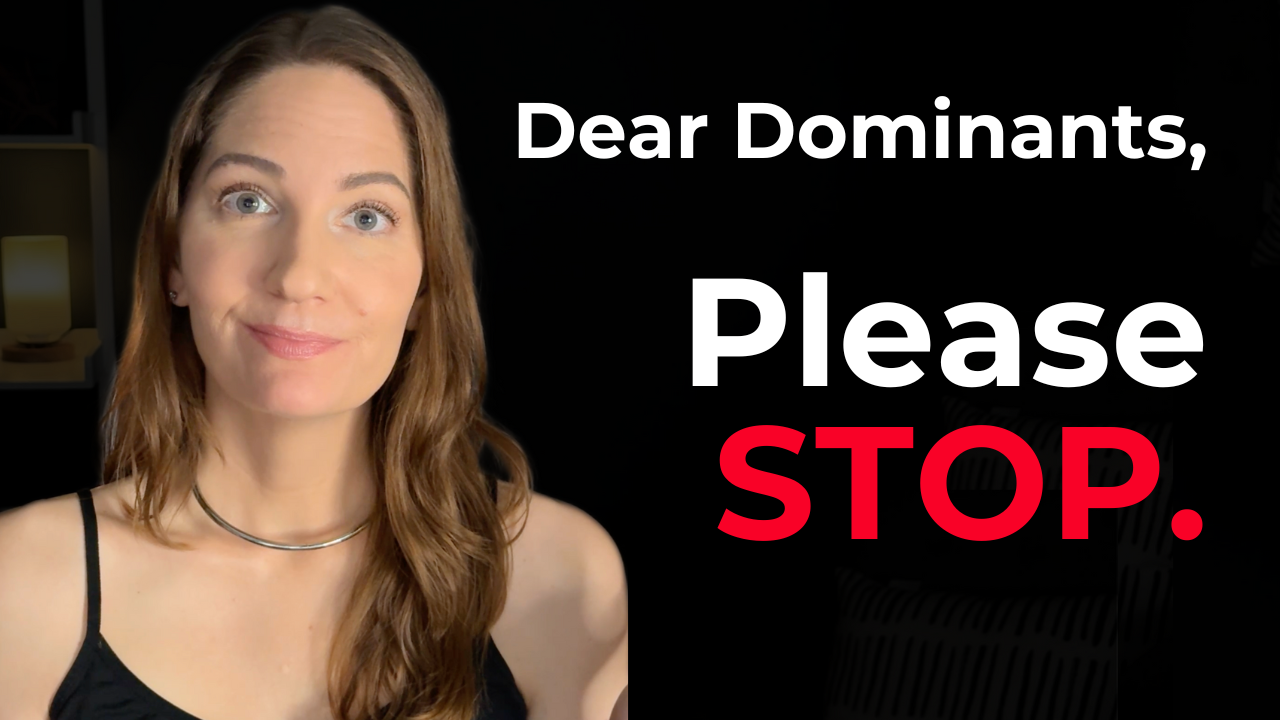
LISTEN TO THE EPISODE:
APPLE PODCASTS | SPOTIFY | IHEART
If you’ve ever felt confused, frustrated, or even a little burned out after following popular BDSM advice, you are definitely not alone. Over the last decade, I’ve worked side-by-side with countless Dominants, submissives, switches, and curious kinksters. And let’s be honest—there’s a LOT of bad BDSM information out there.
In this article, I’m pulling back the curtain to show you the ten BIGGEST myths and mistakes most educators still teach… and what actually works instead.
IN THIS EPISODE
- The biggest myths most BDSM educators are spreading—and why they hurt real-life relationships.
- Why punishment shouldn’t be the main training tool in Dom/sub dynamics (and what works better).
- The truth about the Dominant’s emotional needs and how to support both sides in a power exchange.
- How to adapt D/s dynamics for neurodivergence, mental health, and busy “vanilla” lives.
- Why your BDSM roles don’t have to be fixed forever—and how to create a dynamic that evolves with you.
Is Most BDSM Education Really Outdated?
Let’s just say it: most BDSM education right now is either outdated, performative for social media, or downright wrong. I’ve seen firsthand how this bad advice can hurt real people and damage real Dom/sub relationships.
Not all educators are toxic, of course—there are many wonderful kink teachers—but it’s becoming harder and harder to separate safe, practical teachings from the noise (and even, in some sad cases, dangerous scandals).
If you’re feeling like something’s “off” with what you’ve been taught, you’re probably right. Here’s what you actually need to know before you bring any more “advice” into your bedroom—or your real life.
The Most Common BDSM Myths and Mistakes
1. Punishment Isn’t REAL Training
One of the loudest messages in kink spaces is that punishment is the heart of Dom/sub dynamics. Miss a rule? Get punished. Disobedient? Punished again. Unfortunately, this just turns discipline into fear and anxiety. (I watched one sub start shutting down emotionally until they felt like they was only surviving—NOT submitting.)
True growth and connection come from encouragement, consistency, and open communication, not default punishment.
Yes, punishments have their place, but discipline is so much more than spanking or time-outs. Sometimes it’s a reward, sometimes it’s a heart-to-heart talk. If you’re a Dom, don’t be lazy with your leadership. Are you growing your partner, or just keeping them “in line”?
2. Doms Need Emotional Support Too
Most kink spaces are sub-focused, and while it’s important to make sure subs are safe, Dominants are human too! Dom-drop, guilt, and self-doubt are real. Many Doms (especially men) feel like there’s nowhere safe to admit they’re exhausted or worried they did something wrong.
Make aftercare a two-way street. Even if your needs look different—like wanting space, or needing verbal reassurance—you deserve care and support. Who holds space for the person holding space?

3. Obedience ≠ Devotion
Obeying a rule is NOT the same as caring for and about your Dominant, or submitting from the heart. I’ve seen “perfect” subs who follow instructions out of panic and fear of failure—not desire. Real devotion comes from eagerness, presence, and the freedom to bring your true self. Doms, don’t just ask: “Is my sub obeying?” Ask: “Are they connected to me?”
4. Leather and Old Guard Traditions Are Not The Only Way
To some educators, if you’re not wearing leather, have a mentor, or know all the “right” words, you’re not a “real” kinkster. That’s just gatekeeping, not BDSM. Protocol doesn’t have to look like a 1950s Freemason lodge. Your rituals, titles, and rules can (and should) be custom-made for you and your partner. Authority comes from how you live your dynamic, not from who “initiated” you.
5. Ignoring Neurodiversity, Disability, and Mental Health
Too many BDSM courses assume everyone has the same energy, “spoons”, or emotional bandwidth. But what about subs with chronic fatigue, Doms with ADHD, or folks who are neurodivergent? Your protocols should fit your real capacities, not some “ideal” you saw online. Forget the “shoulds”—start with what you can consistently and joyfully DO.
6. Treating Aftercare As Optional
Aftercare isn’t a dessert or a bonus. It’s not “just cuddling,” and it’s not only for the sub. True aftercare is anything you need to recalibrate after a scene, including space, journaling, hugs, or reassurance. If your educator skips this part, run in the other direction. I teach “dual aftercare”—tailored for both partners, every single time.
7. Failing to Integrate Kink into Vanilla Life
BDSM isn’t just for late-night scenes and Instagram-worthy setups. Most of us live pretty vanilla-adjacent lives with jobs, families, and emergencies. If your dynamic can’t survive dishes and daycare, it’s not going to last. Protocols can be small and subtle, like how you serve coffee or say goodnight. Sustainability matters more than flash.
8. Over-Reliance on Protocol, Underemphasis on Connection

Yes, I LOVE protocols. But without meaning, they’re just busywork. Ask yourself WHY you do each ritual. Does it deepen intimacy, express your identity, or create intentionality? If not, you might be adding noise, not connection.
9. Gendered Language and Lack of Inclusivity
If the educator only talks about male Doms and female subs, or ignores the experiences of BIPOC, nonbinary, or queer kinksters, that’s a red flag. Power exchange is about choice and trust, not gender or background. Everyone deserves to be seen and welcomed in the community.
10. Framing Roles as Fixed Forever
You don’t have to pick “Dom” or “sub” once and stick with it forever! Most people’s roles and needs evolve over time. I started as a submissive and now explore other roles too—sometimes even dominance. It’s normal for you, or your partner, to grow and change. Your dynamic should evolve with you, not keep you stuck.
How to Find Real, Safe, and Relevant BDSM Education
If you want a safe, supportive space to unlearn all these toxic myths, that’s exactly what we offer in the Dom Sub Living All-Access Pass. With monthly coaching, real tools and rituals, and an inclusive community, you’ll have everything you need to thrive.
So ask yourself—are you living your dynamic, or just performing someone else’s script? You don’t have to be stuck, burned out, or perform for others ever again. You deserve the real deal, even (especially!) in the messiness of daily life.
Remember: power and pleasure both belong to you. Embrace them, in your own way, right now.
Links From the Episode:

Want more? Sign up for my newsletter and get BDSM tips on the regular.


